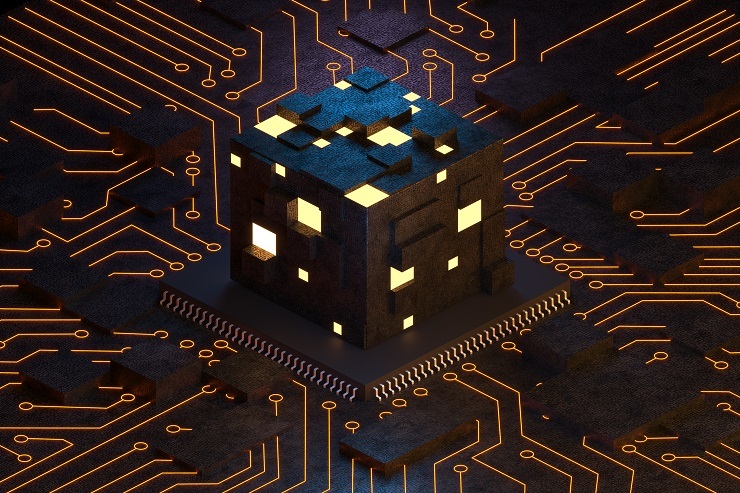

As we enter 2024, the entire cyber security space will encounter a transformative change—one that will reshape each fabrication of data protection and encryption. Here comes quantum computing. Quantum computing is computer science using the principles and methodologies of quantum theory. The theory explains the impact of energy and material on the atomic and subatomic levels.
Although traditional cyber security measures are strong against current standards, they might soon become inadequate in the face of quantum computers’ unparalleled processing abilities. Our blog today explores the impact of quantum computing on cyber security and how we can mitigate the risks of this impending revolution.
Quantum computing normally represents a notable leap from conventional computing. Unlike typical computers that process data in binary bits, quantum computers use qubits, or quantum bits. These qubits harness the principles of quantum mechanics, specifically super positioning and entangling, enabling them to perform the complex calculations of speeds unattained through their classical counterparts. The extraordinary ability arrives with notable cybersecurity implications.
The most growing concern is the possible risks of recent encryption methods. Modern encryption, like the ECC and RSA, depends on the computational challenges of problems like integer factorization and discrete logarithms. Quantum computers, with their advanced processing power, can easily resolve such issues rapidly compared to the computers we have today, making the recent methods of encryption obsolete. The threat here is not theoretical, as it is a foreseeable future case demanding immediate attention, like adopting virus protection.
The following are a few specific examples of quantum computing with the ability to improve and transform cybersecurity:
Quantum computers can handle issues that are extremely advanced for traditional computers to comprehend, like the algorithms underlying the keys used for encryption protecting our information and the technical foundation of the internet. Factorization of the primes is one such issue. Modern industries base their cryptographic operations on big, complicated numbers known as primes that are too large for traditional machines to handle. The factorization of the primes involves tactics where quantum computers employ methods dealing with complex numbers. It has led to the development of quantum cryptography.

Cryptography relies on quantum random number generation. Conventional random number generators frequently use pseudo-random number engines that are not really random and are prone to attack. Quantum random number generators produce random numbers.
QKD uses elements of quantum physics theory to enable the exchange of encryption keys to become completely secret and detect the existence of a source of surveillance.
Future research emphasizes quantum internet cyber security, including constructing substantial management systems allowing decentralized, powerful computing and inventing novel algorithms for encryption. Optimizing it for effectiveness and value generation leads to endless concerns that need to be addressed. Traditional computing requires businesses to perform complex computations after each other, which is a costly process considering the several variables present in each circumstance.
Machine learning algorithms may evolve quite rapidly with increased energy efficiency and time related to the development of scientific research on quantum machine learning. This makes things easier in terms of identifying and preventing new cyberattack tactics. Other than AI in cybersecurity, algorithms developed for quantum computers revolutionize machine learning in fields as diverse as medicine and auto manufacturing.
Quantum computing has significantly changed the topic of cybersecurity in several ways, although there are possible adverse effects and challenges to it. Quantum cybersecurity can offer more extensive and alluring solutions to help preserve the important and personal data that is achievable. It is extremely notable in quantum machine learning and quantum random number creation.
Quantum Cryptography: Contrary to atypical encryption, quantum cryptography is entirely impenetrable, employing the concepts of quantum mechanics to convey safer data. The development of more encryption techniques withstanding attacks from traditional computers is helped by quantum cryptography.
Faster Machine Learning Algorithms: Quantum machine learning makes it possible for machine learning algorithms to be rapid and highly efficient in terms of time and energy, becoming successful in spotting and countering novel cyberattack tactics. Machine learning is used within the cybersecurity space for various reasons involving behavior anomaly detection, prediction, and classification. Identifying anomalous activities like connections through unfamiliar devices, time, or location is part of this anomaly detection.
More Secure Encryption: Quantum computing can help in the development of stronger encryption techniques that can withstand attacks from traditional computers.
Improved Cybersecurity Practices: Quantum computing introduces new cybersecurity concerns that can enhance privacy and communication security. Companies can prepare themselves for quantum computing cybersecurity by considering the inventory of the environment’s cryptographic technology and addressing the side effects or risks.
Potential to Protect Sensitive Data: Quantum cybersecurity offers more strong and attractive scopes to safeguard sensitive data.
The other benefit of quantum computing is creating quantum random numbers. In the world of cryptography, random number creation is essential. The pseudo-random number generators and the real random number generators are two main forms of classical random number generators. It is because the numbers created are likely to be hidden, as the real random number generator offers the best level of security.

There are ongoing studies on the number of approaches taken to help protect against the risk of attacks on the basis of quantum computing technology. To capitalize on the scope offered by quantum computing while mitigating the associated risks, companies can adopt numerous main strategies, as follows:
Invest in Research and Development: To stay ahead of the curve, try allocating resources to research quantum-resistant cryptography, quantum-enhanced security technologies, and quantum-safe encryption protocols.
Foster Collaboration: Partner with academic institutions, research companies, and industry partners to share knowledge, skills, and best practices in quantum cybersecurity and computing.
Develop Talent: Grow a skilled workforce that understands and harnesses quantum computing’s potential for cybersecurity reasons through effective training programs, certifications, and workshops.
Implement Defense-in-Depth: Adopt a layered approach to cybersecurity incorporating several layers of defense, including encryption, access control, authentication, and intrusion detection, mitigating the impact of potential quantum attacks.
The entire journey into quantum computing is both daunting and exciting. The real potential of quantum computers and their ability to solve challenging problems leads to unprecedented advancements in numerous fields. However, the cybersecurity space prompts a race against time to develop and implement quantum-resistant measures. While embracing such changes, our adaptability and resilience become the keys to thriving in this new age of computing.

I’m a Nerd and very proud of it! I love to write about anything Tech related. Subscribe to our blog for helpful tips, tricks & news.




